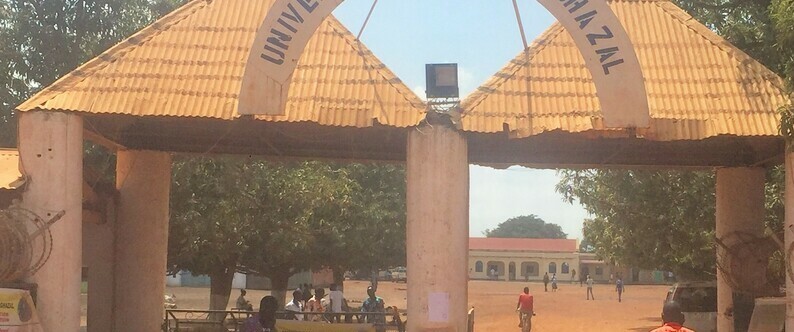The teaching staff at the University of Bahr el Ghazal have gone on strike since Tuesday demanding the implementation of the new salary scale.
The staff at the institution of higher learning in South Sudan’s Western Bahr el Ghazal state last week gave the national government a seven-day ultimatum to implement salary structure adjustments to meet the current inflation rate or they go on strike.
Speaking to Radio Tamazuj, the chairperson of the union Joseph Lual Dario said the industrial action will continue for a week or until their demands are met.
“The academic staff association of the University Bahr el Ghazal ran out of patience, we have declared industrial action starting with a strike and will continue for one week,” Lual said.
Dario said their demands also include clearance of their salary arrears from July 2022 and medical and flight tickets for training outside the state.
“We need urgent implementation of the new salary scale according to the bank inflation rate of 629 SSP per dollar. We need payment of all the arrears from July onwards 2022 and the new salary scale must include medical coverage, flight ticket, and training for the teaching staff,” he stated.
He added that subsequent steps will be determined if the national government fails to take an action.
Meanwhile, some students at the university told Radio Tamazuj that the strike has paralyzed activities at the institution.
“It has affected the learning, we heard rumors that they are going on strike for three days and if there is no change, they are going to extend the strike for the next few days,” Aguek Akoch, a student at the university said. “Actually, you cannot go and advise them, a person cannot wake up early in the morning to go to work and there is nothing that can motivate you. Even if we go and advise them, they cannot deliver what we want from them.”
Another student Kueth Ariath said the strike is expected to hurt the students who are expected to sit their exams.
“For the strike that occurred at the university, it has had a bad impact on the teaching because there are no lectures, and students are now approaching their exams which they are supposed to have regular lectures to have good coverage ahead of their exams,” Ariath added.
Efforts to get comments from the national government were not immediately successful.




